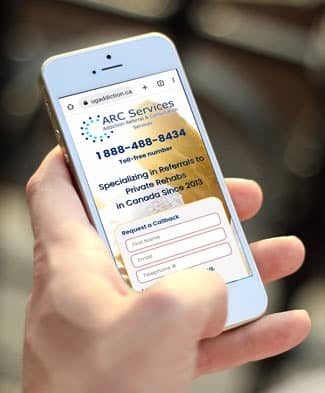Long-term as Opposed to Short-term Treatment Programs
Many questions arise when a family member suffers from substance abuse.
Sending an addicted family member to rehab is one of our first thoughts, but where do we send them, and where do we start?
You may have come across the expression of “long-term and short-term rehab” programs. What are the benefits of one compared to the other?
Let’s look at the difference between short and long-term rehabs.
Short-term Programs
Short-term programs will typically last 21 to 30 days.
If a person’s addiction has a long span, several years, a 21 to 30-day program might not be enough. A short-term recovery program will be more effective for someone who has lacked control over the substance for a few years. A hardcore substance misuser will benefit from a long-term program.
But professionals in the field recognize that a long-term treatment program is best suited for any addicted individual. A 21-day program really only skims the surface. A short-term program schedule will give the person a break but rarely provide them with the means to stay off drugs once the program is over.
Long-term Drug Rehab
The long-term residential addiction program can range from a few months to a year or more. Often called and set in a therapeutic community*. However, models and structure may vary from one facility to the next. Therapeutic communities and other types of long-term residential programs effectively reduce drug use, unemployment, and criminal behaviour. The length of time spent in treatment is an important predictor of outcomes and will vary from one individual to another. Much of the time, a long-term rehab will have a structured program and give the person enough time to adjust to life without drugs. Some centres’ approach is on the twelve-step model others are not.
The heavier the case, the longer it usually takes for the person to get some control back in their life. Restoring one’s hope, self-respect, and relationships takes time. Many rehabilitation approaches also include Life Skills to better prepare the recovering addict in dealing with life issues. The addict will eventually address the underlying issues relating to their addiction, but this too takes time.
‘’Research found that therapeutic communities and other types of residential programs are effective in reducing drug use, unemployment, and criminal behavior and that length of time spent in treatment is an important predictor of client outcomes from programs.’’
Journal of Substance Abuse Treatment
A therapeutic community or TC is an intensive long-term treatment program developed for adults and adolescents with substance abuse issues. It was developed in 1958, when other therapies, like psychiatry and general medicine, were not able to treat substance abuse successfully. Creating the right conditions for people to change undesirable behaviors and learn new ways of doing things.
Long-Term and Short-Term
in Drug Rehabilitation Services
If you or someone you love has a dependency on drugs or alcohol, you have nothing to lose by contacting our referral counsellors. They can help you decide the best course of action for that person. The situation you are living in is difficult at best. Getting the one you care about into a private treatment centre in Canada is our specialty. Our referral counsellors have many years of experience with substance abuse and rehabilitation centres. They can help you decide whether a long-term rehab or short-term program is appropriate. We are confident we can help. Call our toll-free number or request a callback.
Back to Treatment Types

Sources:
Pathways to Long-Term Recovery: A Preliminary Investigation
* The Therapeutic Community: Theory, Model, and Method-By George De Leon, PhD





